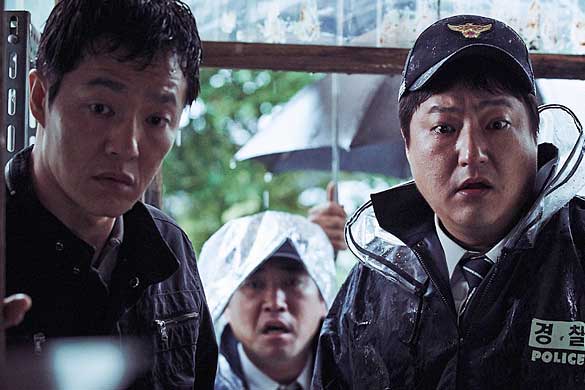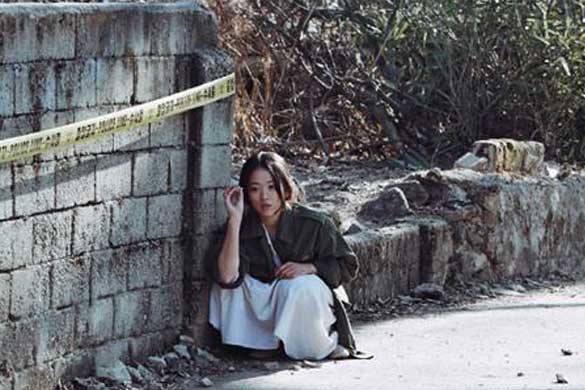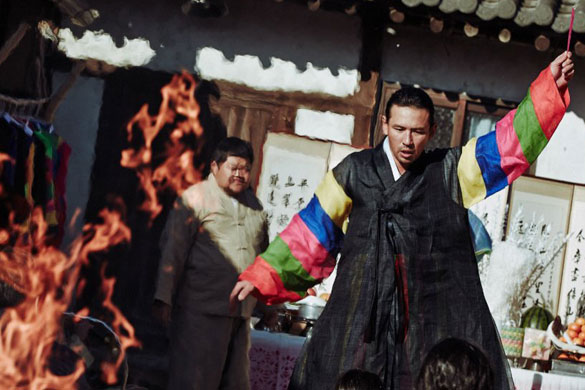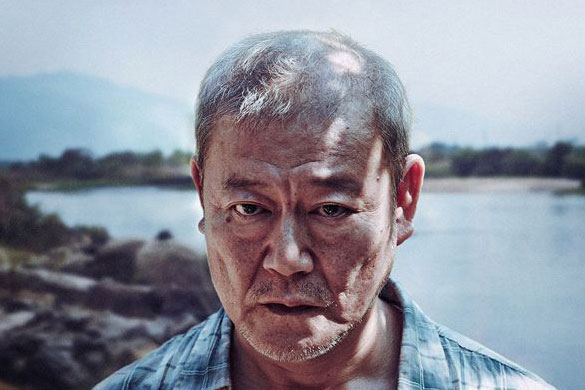
 |
||||
A small, rural Korean community is rocked by an increasing number of seemingly inexplicable, hugely violent murders. The alleged perpetrators all appear to have contracted a disease causing severe rashes on the skin, changing their personalities to ravingly psychotic and abusively violent, each subsequently killing a member of their family and even, in some cases, resulting in them ultimately hanging themselves.
Review: Gentle music heralds the opening scene of ‘The Wailing’ showing the aforementioned Japanese man fishing at a lakeside idyll, threading live worms onto bait hooks and casting his line to catch whichever creature is unfortunate enough to be drawn to his snare. Though we’re as yet unaware, this first small dialogue-free scene foreshadows a later conversation between Jong-goo and the shaman he enlists to expel the demonic presence possessing his daughter and bring an end to the alleged ghost: Jong-goo states that he cannot understand why such terrible things are happening to wholly innocent Hyo-jin, to which the shaman replies that the demon is simply fishing, not knowing nor caring who specifically will take the bait. An early example, in hindsight, of how subtly layered and perfectly crafted ‘The Wailing’ really is. Other similarly, beautifully subtle, dialogue-free foreshadowings of future plot points/devices occur throughout ‘The Wailing’ – a brief visual focus on strange, withered foliage hanging outside victims’ homes; Hyo-jin’s sudden tendency to ravenously gulp down vast quantities of food at breakneck speed while her family look on open-mouthed with shock and downright incredulity; etc – ensuring that when the time comes for their importance to proceedings to be revealed viewers are already familiar with their inclusion without the need for clunky exposition, allowing the flow of the narrative to carry through unabated with no jarring break in pace, in the process.
Na Hong-jin wrote ‘The Wailing’ as well as directing, and his creation of the three characters Jong-goo mainly comes into contact with in relation to the horrific murders and madness is as close to perfect as you could ask: The seemingly stern, almost non-verbal Japanese man whose prolonged poker-faced stares could equally be the incredulous confusion of an innocent foreigner persecuted or a window into the dark mind of the personification of evil; the mysterious young woman, Moo-myeong (Chun Woo-hee), who moves from throwing stones at Jong-goo to get his attention to randomly appearing near crime scenes with far more knowledge of events than one would expect from an innocent; and the outspoken, over-confident – verging on pompous – shaman (Hwang Jung-min) whose aborted ritual appears to make Hyo-jin worse rather than better; each has an odd, sometimes quirky, sometimes jarring aspect to their personality that raises questions as to whether they really are who they claim and appear to be, ensuring that, like Jong-goo, viewers will repeatedly reassess what their true involvement in the worsening situation is.
As a final point, while each and every performance in ‘The Wailing’ is exemplary (not necessarily that much of a surprise considering the calibre of the cast), it is 14-year-old Kim Hwan-hee in the role of Hyo-jin who will take your breath away. Much has been said over the years about the sheer talent of young actors and actresses in Korean cinema and Kim Hwan-hee’s superb performance underlines the truth of those statements, to the nth degree. Her move from sweet, lovable, innocent child to aggressive, foul-mouth and murderous soul possessed is frankly incredible and, personally speaking, it was her performance far more than any other that stayed with me long after the credits rolled.
‘The Wailing’ (곡성) / 2016 / directed by Na Hong-jin
|
||||
All images © 20th Century Fox Review © Paul Quinn |
||||



